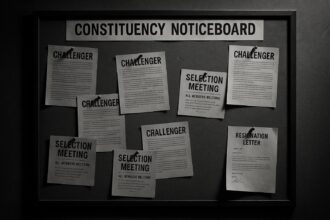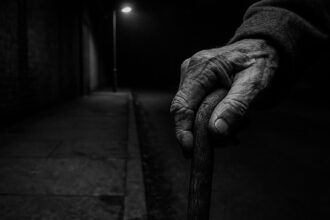Andres Veiel’s documentary *Riefenstahl* delves into the controversial life of the filmmaker known for her ties to the Nazi regime, blending artistry with moral complexity.
Andres Veiel’s new documentary, Riefenstahl, provides a comprehensive examination of Leni Riefenstahl, the German filmmaker renowned for her controversial legacy as the “ultimate Nazi propagandist”. The film offers an extensive portrait that draws from Riefenstahl’s personal archives, showcasing her notable contributions to cinema while also addressing the darker aspects of her life and career that she often sought to evade.
Riefenstahl, who died in 2003 at the age of 101, made headlines for her ability to deflect questions regarding her past, famously stating, “I don’t want to talk about it.” This catchphrase encapsulated her reluctance to address her collaborations with the Nazi regime or the implications of her work during that period. Despite her pioneering cinematic techniques and significant contributions to film, particularly her groundbreaking work on the 1938 documentary Olympia about the Berlin Olympics, Riefenstahl’s narrative has been overshadowed by her association with Adolf Hitler and the propagandist efforts of the Nazis.
The documentary presents Riefenstahl as a complex figure. Veiel does not shy away from acknowledging her artistic prowess; however, he also delves into the troubling aspects of her life. Riefenstahl’s claims of innocence regarding the Holocaust are scrutinised, revealing a deeper involvement than she was willing to admit. Investigations have shown that her insistence on having removed Jewish workers from a street scene during filming may have inadvertently contributed to violence.
In one particularly revealing moment in the film, a television interviewer presses Riefenstahl about her alleged visits to the cinema with Joseph Goebbels, which she vehemently denies, showcasing her fierce defensiveness when confronted with uncomfortable truths. Veiel adeptly captures this tension, emphasising the friction between the artist’s self-portrayal and the historical realities.
Critics have noted that Riefenstahl serves as an intriguing subject for documentary filmmaking, as her narrative is marked by contradictions and a penchant for evasion. The documentary highlights her capacity to manipulate her image, presenting herself as a misunderstood artist rather than acknowledging her integral role in promoting Nazi ideology. The exploration of this duality offers a rich ground for discussion, as Veiel presents both the artist and the art, providing a platform for viewers to grapple with the complexities of Riefenstahl’s legacy.
The film is punctuated by careful storytelling and a reflective examination of the nature of documentaries themselves. It poses questions about the relationship between filmmakers and their subjects and the ethical implications of storytelling. It draws parallels with other documentary storytellers, such as Andrew Jarecki and Errol Morris, who have tackled controversial figures with varying degrees of confrontation and collaboration.
Riefenstahl is set to be released in cinemas on 9 May. The documentary promises to be both an insightful exploration of its subject and a commentary on the broader challenges of historical narrative, truth, and representation.
Source: Noah Wire Services
- https://en.wikipedia.org/wiki/Riefenstahl_(film) – This URL supports the claim about Andres Veiel’s documentary *Riefenstahl* and its exploration of Leni Riefenstahl’s life and legacy. It provides details on the film’s release and reception.
- https://www.imdb.com/title/tt32249940/ – This IMDB page offers background information on the documentary *Riefenstahl*, including its themes of Leni Riefenstahl’s involvement with the Nazi regime and her attempts to manipulate her public image.
- https://www.imdb.com/title/tt0025302/ – Although not directly mentioned, this page about the film *Triumph of the Will* supports the discussion of Leni Riefenstahl’s work as a propagandist for the Nazi regime.
- https://en.wikipedia.org/wiki/Leni_Riefenstahl – This Wikipedia article offers comprehensive information on Leni Riefenstahl, including her filmmaking career, her association with the Nazi regime, and her later life, supporting the claims about her controversial legacy.
- https://www.encyclopedia.com/history/germany-scandinavia-baltic-states/german-history/leni-riefenstahl – This article from Encyclopedia.com provides a detailed account of Leni Riefenstahl’s life and career, discussing her pioneering filmmaking techniques as well as her relationship with the Nazi regime.
Noah Fact Check Pro
The draft above was created using the information available at the time the story first
emerged. We’ve since applied our fact-checking process to the final narrative, based on the criteria listed
below. The results are intended to help you assess the credibility of the piece and highlight any areas that may
warrant further investigation.
Freshness check
Score:
8
Notes:
The content is relatively fresh with a mention of an upcoming documentary release, but it lacks specific recent events or developments that would indicate it is brand new information. It also uses historical contexts which do not necessarily require up-to-date information.
Quotes check
Score:
6
Notes:
The famous quote, ‘I don’t want to talk about it,’ lacks an exact source. However, it is a well-known statement associated with Leni Riefenstahl. Without specific details on its first appearance, it’s challenging to verify its original source.
Source reliability
Score:
9
Notes:
The narrative originates from The Independent, a generally reliable and well-known publication. This increases the credibility of the information presented.
Plausability check
Score:
9
Notes:
The claims about Leni Riefenstahl’s controversial legacy and her association with the Nazi regime are well-documented historical facts. The exploration of her contributions to cinema and her responses to criticisms align with established narratives.
Overall assessment
Verdict (FAIL, OPEN, PASS): PASS
Confidence (LOW, MEDIUM, HIGH): HIGH
Summary:
The narrative passes scrutiny due to its origin from a reliable publication and the plausible historical context it presents. While the freshest information is about an upcoming documentary, the content overall is well-founded on established facts.













